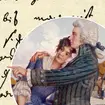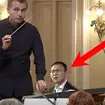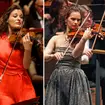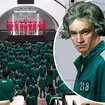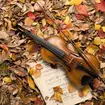Storming the Great Gates
The Bournemouth Symphony Orchestra is on scintillating form in these ever-popular Tchaikovsky and Mussorgsky masterpieces
Composer: Tchaikovsky, Mussorgsky
Repertoire: Symphony No.2, ‘Little Russian’ (Tchaikovsky); Pictures at an Exhibition, Night on the Bare Mountain (Mussorgsky)
Artists: Bournemouth SO/Kirill Karabits
Rating: 5/5
Genre: Orchestral
Label: ONYX 4074
The Music: In the summer of 1872 Tchaikovsky went to stay at his sister’s estate, and whilst there he sketched his Second Symphony. But, in an episode of pure farce, on his way home he promptly lost the manuscript during an evening of alcohol-fuelled high jinks that involved his preposterously posing as ‘Prince Volkonsky, Gentleman of the Emperor’s Bedchamber’ and mislaying all of his belongings and music in the process (don’t ask – it’s a long story). Eventually, however, he recovered his sketches and was able to orchestrate the work in time for a rapturous premiere performance.
That same summer, Mussorgsky was sharing an apartment in St Petersburg with fellow composer Rimsky-Korsakov and desperately trying to convince the officials at the Mariinsky Theatre to stage his new opera Boris Godunov (painfully, they initially rejected both his original and his drastically reworked versions). Mussorgsky and Rimsky-Korsakov shared a piano. Mussorgsky made use of it in the morning before going off to his day job, leaving Rimsky-Korsakov with it for his afternoon inspirations. The two composers knew each other’s music so intimately that Rimsky-Korsakov was able to revise and edit many of Mussorgsky’s works upon his death in 1881. It is Rimsky-Korsakov’s revision of Night on the Bare Mountain that is most commonly heard today, but the version recorded here is Mussorgsky’s quirkier original.
The Performance: Night on the Bare Mountain never achieved popularity in Mussorgsky’s lifetime in spite of his frequent reworking of the piece, which seems all the more extraordinary when you hear how exciting the BSO’s recording is. Yes, Mussorgsky’s musical structure is a little bit bonkers (and it’s occasionally clumsily stop-start), but in this recording the piece simply comes across as the work of a composer who is having the time of his life. He gleefully experiments with instrumental combinations, creating an enchanting, constantly shifting spectrum of orchestral colours along the way. The technical fluency of the BSO’s woodwind and brass sections, coupled with quick-silver dynamic fluctuations (closely controlled by Kirill Karabits) makes for a feast of musical detail. This is deeply impressive orchestral playing: exuberant, full-hearted and characterful.
In 1874, Mussorgsky composed Pictures at an Exhibition, a piano work inspired by a retrospective of the work of his recently deceased friend, Victor Hartmann. Ravel’s version of Mussorgsky’s Pictures at an Exhibition from 1922 is a masterclass in the art of orchestration (and if you are interested in hearing a solo piano version, try Leif Ove Andsnes on EMI Classics,
698 3602). What is perhaps most striking about Ravel’s approach to orchestration for listeners today is how much it resembles film soundtracks by the likes of John Williams, Hans Zimmer and Howard Shore. Ravel effectively set the template for orchestral film scoring. The moment when the blazing glory of ‘The Great Gate of Kiev’ emerges from ‘Baba-Yaga’ is perfectly managed, and when the leash is let off the BSO in those glorious final pages, the effect is breathtaking.
But let’s get back to Tchaikovsky and his hangover. What is most noticeable about the final movement of the Second Symphony is how similar it is to Mussorgsky’s ‘The Great Gate of Kiev’. The tune that Tchaikovsky uses is a Ukrainian folk tune called ‘The Crane’, which he puts through a series of increasingly excitable variations, leading to a grandstanding climax. This is not the angst-ridden Tchaikovsky of the later symphonies; the music requires a lightness of touch and instrumental agility that is perfectly tailored to the Bournemouth Orchestra’s virtuosity.
The Verdict: This is a supreme performance, expertly recorded. The BSO is on a fascinating artistic journey with their young music director. And I for one can’t wait to see what they do next.




